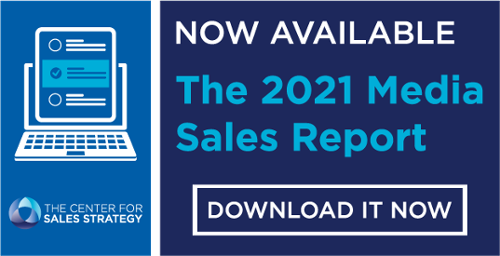
72% of Americans believe whoever is elected in the White House will directly impact their finances — and 32% are putting off a big financial decision until Election Day.
Every four years, there’s a whirlwind of uncertainty about who will win the presidential and congressional elections. This year, our economic future tops the poll of concern. The unknowns are causing leadership to take fewer risks, hold off on making necessary business decisions, and hesitant to have conversations regarding annual contracts.
While we can’t predict the future and outcome, we can take control by being proactive. When it comes to business, time is money. And every business decision you delay is costing you valuable time and money.
Handling an Age-Old Sales Objection
“I’m hesitant to make any decisions until after the election.”
 Hesitation objections have been around since the beginning of time. This statement is a different version of the common sales objection, “I need to think about it.” Typically, we advise addressing this objection with a well-crafted response that asks questions like:
Hesitation objections have been around since the beginning of time. This statement is a different version of the common sales objection, “I need to think about it.” Typically, we advise addressing this objection with a well-crafted response that asks questions like:
- “What exactly is holding you back from making a decision?”
- “How much time and money is this costing you by not making a decision?”
The key to having conversations about annual contracts and creating an annual plan amidst the election is to be proactive and create two plans, regardless of hesitation. During every election, growth strategies and risk mitigation are top concerns. The best advice is to be prepared for either outcome.
Review proposals, understand the processes and outcomes that may change if one party is elected over the other, and keep your sights on the long-term trends that live well beyond election cycles.
How Businesses Planning for the 2020 Election Outcome
PwC recently surveyed 578 CFOs and other C-Suite executives to provide insight on business strategies. If Biden wins, 57% said they’re more likely to increase tax planning investments, compared to 43% who say the same in a Trump reelection. But under a second Trump term, 45% would increase investment in supply chains — compared to 37% for a Biden administration.
Regardless of the election outcome, 70% of respondents think business tax rates will rise to pay for COVID-19 relief, and 63% believe trade restrictions between the U.S. and China will increase.
To highlight the election's investment implications, the U.S. Public Policy Research team at Morgan Stanley’s detailed how divided vs. unified government could influence tax reform, prescription-drug pricing, the broader regulatory environment, and the response to COVID-19. This report shows five key themes and four possible scenarios and plausible policy pathways that many markets and investors are considering when building 2021 plans.
Control What You Can
When it comes to business, you’re commander-in-chief. It’s crucial to focus on what you can control rather than “wait it out” and see what happens. Markets may be volatile but you must avoid being reactive.
Keep in mind that change is slow. All major changes in fiscal and monetary policies, outside of pandemic events, takes time to happen. Simply waiting to have conversations about annual plans and contracts is NOT a good solution!


